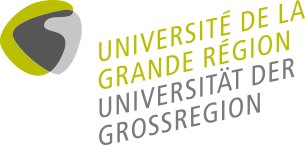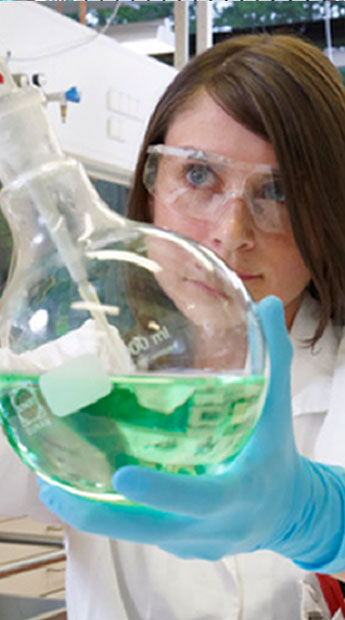Domaine-phare UniGR : Biomédecine
Particulièrement diversifié, le domaine-phare Biomédecine réunit des chercheur.e.s de très nombreuses disciplines issues des sciences du vivant et de la médecine, telles que la bio-informatique, la biologie des systèmes, la biologie moléculaire et cellulaire, la psychologie, la pharmacie ou encore l’épigénétique.
Ainsi se créent en Grande Région des réseaux de recherche interdisciplinaires, au sein desquels les scientifiques peuvent procéder à des travaux de recherche conjoints sur l’étiologie des maladies et sur les possibilités de traitement, dans le cadre de projets transfrontaliers.
Des réseaux de chercheur.e.s existent déjà dans les domaines suivants :
(Contenu en anglais, sauf Cartilage et Redox Biology)
Big Data - Challenges and Opportunities
A one-day UniGR workshop, co-organised with the Luxembourg Centre for Systems Biomedicine (LCSB), took place on December 6th 2013 in Luxembourg.
While it is widely recognized that we need more data-driven decision-making processes, there is still a wide gap between the current situation and the potential and realization of the notion “Big Data”. In the life sciences we are at the border of having the data rolling in but not having the machinery and pipelines in place to use them in an efficient and innovative way.
Joint efforts and discussions among different academic groups – biologists, computer scientists, bioinformatics, mathematicians and others - are needed to deal with challenging data management and analysis demands.
For that reason, UniGR brought together researchers from the Greater Region.
Cancerology & Microbiome
In the last ten years, new knowledge about the human microbiome has created a paradigm shift in our view of human biology and human disease. New scientific technologies like DNA sequence analysis have revealed a rich and complex community of microorganisms which are resident in and on the human body. It is becoming increasingly apparent that these microbial communities, which number in the trillions and represent thousands of bacterial, viral and fungal species, do not cause disease but, in fact, are required for normal human development and for lifelong health.
Within this group of researchers, the link between tumorgenesis and human microbiome is investigated with regard to cancer prevention and cancer therapy efficacy.
Contact: Prof. Dr. Jochen Schneider, Luxembourg Centre for Systems Biomedicine, University of Luxembourg
Cartilage
Le projet « Université de la Grande Région » a fourni le cadre nécessaire à la création, en décembre 2011, du « Réseau Cartilage de la Grande Région ». Ce réseau initié par le Prof. Madry de l'Université de la Sarre réunit tous les chercheurs de la région travaillant dans le domaine du cartilage, des médecins aux biologistes moléculaires en passant par les ingénieurs et les pathologistes. Les partenaires de Lorraine, du Luxembourg, de Sarre et de Wallonie ne représentent pas seulement les universités partenaires du réseau UniGR, mais également les cliniques et instituts de recherche concernés.
Ils se réunissent régulièrement, tant à un niveau bilatéral qu’en présence de tous les partenaires, que ce soit à l’occasion de conférences ou d’importants congrès. Ces échanges sont fructueux pour les chercheurs car ils permettent de s'associer pour la publication d’articles ainsi que de faire des demandes de projet en commun. Ils sont également avantageux pour les étudiants et les doctorants qui peuvent ainsi nouer des contacts internationaux précoces.
Le réseau du cartilage en Grande Région a reçu en 2012 le premier prix du Prix interrégional de la recherche décerné par le groupe de travail "enseignement supérieur et recherche" de la Grande Région.
Vous trouverez plus d’informations sur les membres et les activités du réseau sur le site web de M.Madry (en anglais).
Modulation of eating behaviour through deep brain stimulation (MIB-DBS)
Eating disorders such as anorexia nervosa, bulimia nervosa and binge eating disorder and disordered eating behaviours associated with morbid obesity show a rise in prevalence across much of the industrialised countries. While efforts continue to better understand the processes underlying these conditions, their successful treatment often represents a real challenge.
More importantly, eating disorders and their associated conditions affect an increasing number of children and adolescents. Conventional treatments comprise cognitive behavioural therapy (CBT), family based treatments and pharmacotherapy. Although these approaches produce better outcomes than previous treatments, their still limited success has encouraged neuro-cognitive and physiological approaches, e.g. vagus nerve stimulation, transcranial magnetic stimulation, transcranial direct stimulation as well as deep brain stimulation (DBS). Given their relative novelty, there are few systematic studies that test the underlying mechanism (e.g. the optimal location for the intervention) of these approaches, possible ways of optimizing these treatments (e.g. through neuro-monitoring etc.) and their long-term consequences.
A workshop was organised on the initiative of Jochen Schneider (Saarland University & University of Luxembourg), Claus Vögele (University of Luxembourg / INSIDE Institute for Health and Behaviour) and Frank Hertel (Centre hospitalier de Luxembourg), on 27 February 2015.
Psychobiology & Health
Following three workshops on "Psychobiology & Health" organised in 2014, a cross-border research group involving the UniGR partner universities has gathered around Claus Vögele (University of Luxembourg) and Hartmut Schächinger (Trier University) to deepen the cooperation in the field of "A systems approach to stress".
Redox Biology
Si les processus d’oxydo-réductions jouent à bien des égards un rôle déterminant dans le bon fonctionnement de l’organisme, le stress oxydant conduit, quant à lui, à la destruction de cellules, étant ainsi à l’origine de nombreuses maladies et du phénomène de vieillissement. Un bon équilibre entre processus oxydants et anti-oxydants est par conséquent extrêmement important afin d’éviter l’apparition de maladies. Cepandant, le corps dispose de nombreux mécanismes de protection lui permettant de lutter contre les effets néfastes du stress oxydant. Toutefois, lorsque ces mécanismes ne suffisent plus à neutraliser les dommages occasionnés, l’organisme s’en trouve affecté et plus sujet à l’apparition de certaines maladies. Le stress oxydant joue aussi un rôle particulièrement important dans les maladies liées au vieillissement comme l’insuffisance cardiaque ou la démence sénile, en s’attaquant aux cellules des tissus concernés.
Au sein des universités partenaires de l’UniGR, de nombreux groupes de travail se consacrent à ces thèmes de recherche (à Hombourg/Sarre, Liège, Luxembourg, Kaiserslautern, Metz, Nancy, Sarrebruck et Trèves).
Contacts :
Technische Universität Kaiserslautern, Cellular Biology
University of Lorraine
Saarland University, Biophysics
Systems Biology
The modern research fields of Systems Biology/Medicine and Epigenetics are central research activities at several UniGR partner sites. UniGR workshops have in the past been organised by Prof. Volkhard Helms (Saarland University) and Prof. Thomas Sauter (University of Luxembourg) as well as by the research unit BioComp - Complex Data Analysis in Life Sciences and Biotechnology – of TU Kaiserslautern (scientific coordinator Dr. Dorothea Hemme).
Les Correspondant.e.s UniGR vous fourniront les coordonnées des chercheurs impliqués sur demande.



